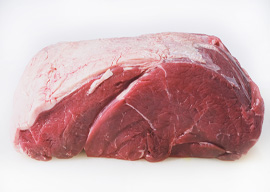
October 21, 2017

Source: Bigstock
But it is not easy to find workers for abattoirs. Every day there are advertisements in labor exchanges and employment agencies for “motivated” workers to exsanguinate chickens, eviscerate pigs, and pack offal, who must be able to work repetitively, in a refrigerated environment (experience with knives being an advantage), and be able to stand the sight of blood—all, moreover, for the minimum wage.
Yet there are whole towns dependent economically on abattoirs, and when they close down because of competition from bigger, better, more mechanized abattoirs (the largest is in Denmark and has become almost a tourist attraction, so clinically and reassuringly anesthetic are its procedures), it is a social and economic disaster. Oddly enough, workers become attached to their place of work, for it provides them with a social life, however grim it may be in other respects. Few are they who rejoice in their own redundancy. Ms. Mokiejewski admits this, an admission that increases my esteem for her.
One of the most disturbing, and moving, stories she tells is that of a man whose job it is to stun cattle into unconsciousness before they have their throats cut. This is done in the name of humanity, but some people who perform the job of stunning them beat or whip those that show themselves reluctant to come forward and be stunned. In this case, however, the man speaks to them gently and tenderly: “Come, my child, there is nothing to fear.”
Nothing to fear, except being done to death (and sometimes the stunning does not quite work). But the man shows real feeling toward the cattle, and if it were not he, it would be someone far, far worse, for abattoirs can attract sadists. There could be no more powerful testimony, however, that animals—at least at a certain evolutionary level—are not mere machines.
In fact, I have begun my descent (or is it ascent?) into vegetarianism. I eat far less meat than I once did, for three reasons. The first is age: One loses the taste for meat as one ages. The second is that I now suffer from gout, and though I have been unable to discover firm scientific evidence that avoiding meat is good for gout, such is the wisdom of ages. Finally, there is the influence of this little book, which told me nothing that I did not really know and which I nevertheless hope will soon be translated into English, as it deserves to be. The fact is that the horrors of abattoirs, and all that leads up to them, are a necessary condition of our being able to afford to eat meat.